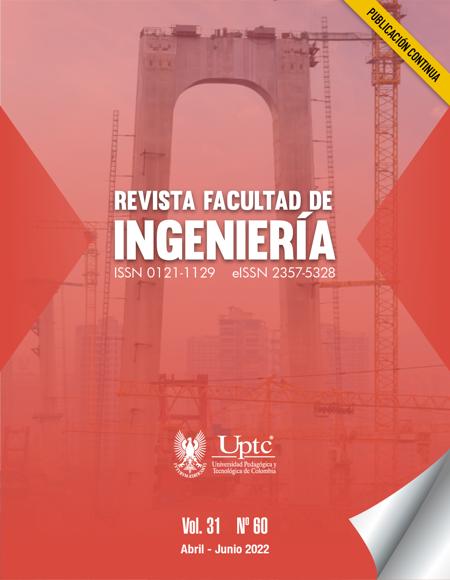Need for Communitarian Ethics in Mathematics Teaching-Learning in Engineering Careers

Abstract
This article presents some reflections on ethics in mathematics classes in engineering majors. We conceptualize ethics as the forms of relationship with the other or the otherness forms. Once the production and learning of mathematics are conceived as processual events that occur in concrete human practice, ethics is considered an inescapable element to consider, as the theory of objectification suggests. In the first part, this study addresses a brief contextualization of the relationship between mathematics teaching and learning and engineering from an ethical point of view. Then, an approach to Radford's theory of objectification and its ethical position is presented. In the third part, this study addresses an instrument design that allowed to explore preliminarily in a group of university mathematics professors the types of ethics applied in the classrooms. The fourth part of the article focuses on the analysis of the responses. Finally, we present some reflections and suggestions for future studies.
Keywords
collective learning, community ethics, obedience ethics, university mathematics, subject, objectivation theory
Author Biography
César-Augusto García-Ubaque
Roles: Research, Supervision, Methodology, Validation, Writing - Orginal Draft, Writing - Review and editing.
Rodolfo Vergel
Roles: Conceptualization, Methodology, Data curation, Formal analysis, Research, Writing - Review and editing.
References
- P. Ernest, “Los valores y la imagen de las matemáticas: una perspectiva filosófica,” Uno-Revista didáctica de las matemáticas, vol. 23, pp. 1-27, 2000.
- L. Radford, “La ética en la teoría de la objetivación [Ethics in the theory of objectification],” in Ética: Entre educación y filosofía. Bogotá: Ediciones Uniandes, 2021, pp. 73-105.
- L. Radford, A. Lasprilla, “De por qué la ética es ineludible de considerar en la enseñanza-aprendizaje de las matemáticas,” La matematica e la sua didattica, vol. 28 (1), pp. 107-128, May. 2020.
- J. Nealon, “The ethics of dialogue: Bakhtin and Levinas”, College English, vol 59 (2), pp. 129–148, 1997. https://doi.org/10.2307/378545 DOI: https://doi.org/10.2307/378545
- R. Bijlsma, “Sympathy and affectuum imitatio: Spinoza and Hume as social and political psychologists,” South African Journal of Philosophy, vol. 33, no. 1, pp. 1-18, 2014. https://doi.org/10.1080/02580136.2014.892674 DOI: https://doi.org/10.1080/02580136.2014.892674
- L. Navarro, “El pensamiento matemático: una herramienta necesaria en la formación inicial de profesores de matemática,” VARONA Revista Científico-Metodológica, vol. 65, pp. 1-7, 2017
- A. Dias de Figueiredo, “Toward an Epistemology of Engineering,” in Workshop on Philosophy and Engineering, London, United Kingdom, 2008, pp. 94-95.
- M. Bunge, La ciencia: su método y su filosofía. Buenos Aires: Editorial Siglo XX, 1972.
- E. Serna, A. Serna, “Crisis de la Ingeniería en Colombia – Estado de la cuestión,” Ingeniería y competitividad, vol 17, no. 1, pp. 63-74, 2015. https://doi.org/10.25100/iyc.v17i1.2201 DOI: https://doi.org/10.25100/iyc.v17i1.2201
- M. Rodríguez, “Matemática, cotidianidad y pedagogía integral: tendencias oferentes desde una óptica humanista integral,” REIFOP, vol. 13, no. 3, pp. 105-112, 2010.
- R. Rodríguez, “Repensando la enseñanza de las matemáticas para futuros ingenieros: actualidades y desafíos,” IE Revista de Investigación Educativa de la Rediech, vol 8, no. 15, pp. 69-85, 2017. https://doi.org/10.33010/ie_rie_rediech.v8i15.55 DOI: https://doi.org/10.33010/ie_rie_rediech.v8i15.55
- L. E. Capace, “La enseñanza de la matemática en ingeniería,” in Investigaciones en educación matemática. Maracay: Universidad de Carabobo, 2015, pp. 107-119.
- S. Høynes, T. Klemp, V. Nilssen, “Mentoring prospective mathematics teachers as conductors of whole class dialogues - Using video as a tool,” Teaching and Teacher Education, vol. 77, pp. 287-298, 2019. https://doi.org/10.1016/j.tate.2018.10.014 DOI: https://doi.org/10.1016/j.tate.2018.10.014
- I. Noben, J. Deinum, I. Douwes-van Ark, W. Adriaan Hofman, “How is a professional development programme related to the development of university teachers’ self-efficacy beliefs and teaching conceptions?,” Studies in Educational Evaluation, vol. 68, e100966, 2021. https://doi.org/10.1016/j.stueduc.2020.100966 DOI: https://doi.org/10.1016/j.stueduc.2020.100966
- O. Shapira-Lishchinsky, “The implicit meaning of TIMSS: Exploring ethics in teachers’ practice,” Teaching and Teacher Education, vol. 79, no. 7, pp. 188-197, 2019. https://doi.org/10.1016/j.tate.2018.12.013 DOI: https://doi.org/10.1016/j.tate.2018.12.013
- L. Radford, “Algunos desafíos encontrados en la elaboración de la teoría de la objetivación,” PNA, vol. 12, no. 2, pp. 61-80, 2018. https://doi.org/10.30827/pna.v12i2.6965 DOI: https://doi.org/10.30827/pna.v12i2.6965
- R. Vergel, I. Miranda, “Editorial,” Revista Colombiana de Matemática Educativa, vol. 5, no. 2, pp. 1-13, 2020.
- K. Marx, The German ideology. New York, NY: Prometheus Books, 1998.
- E. Lévinas, Totalidad e infinito: Ensayo sobre la exterioridad. Salamanca: Sígueme, 1977.
- L. Cohen, L. Manion, K. Morrison, Research Methods in Education. London: Routledge, 2007. DOI: https://doi.org/10.4324/9780203029053
- L. Radford, “Ser, Subjetividad y Alienación,” in Enseñanza y aprendizaje de las matemáticas: problemas semióticos, epistemológicos y prácticos. Bogotá: Universidad Distrital Francisco José de Caldas, 2017, pp. 137-165.
- G. W. F. Hegel, The philosophy of history. Kitchener: Bato- che Books, 2001.
- L. Radford, “Reimaginar el aula de matemáticas: Las matemáticas escolares como praxis emancipadora,” Revista Chilena de Educación Matemática, vol. 13, no. 2, pp. 44-55, 2021. https://doi.org/10.46219/rechiem.v13i2.88 DOI: https://doi.org/10.46219/rechiem.v13i2.88
- L. S. Vygotsky, The Collected Works of L. S. Vygotsky (Vol. 1). New York: Plenum, 1987.
- P. Valero, “Postmodernism as an attitude of critique to dominant mathematics education research,” in Mathematics education within the postmodern. Greenwich: Information Age Publishing, 2004, pp. 35-54.
- R. Vergel, “El signo en Vygotski y su vínculo con el desarrollo de los procesos psicológicos superiores,” Folios, vol. 39, no. 1, pp. 65-76, 2014. https://doi.org/10.17227/01234870.39folios65.76 DOI: https://doi.org/10.17227/01234870.39folios65.76
- L. Radford, “¿Cómo sería una actividad de enseñanza-aprendizaje que busca ser emancipadora? La labor conjunta en la teoría de la objetivación”, Revista Colombiana de Matemática Educativa, vol. 5 no. 2, pp. 15-31, 2020. DOI: https://doi.org/10.37084/REMATEC.1980-3141.2020.n16.p27-42.id306
- P. Freire, Pedagogia do oprimido. Río de Janeiro: Paz e Terra, 1970.
- P. Freire, Pedagogy of indignation. Boulder: Paradigm Publishers, 2004.
- E. Fromm, Marx y su concepto del hombre. Ciudad de México: Fondo de Cultura Económica, 2019.